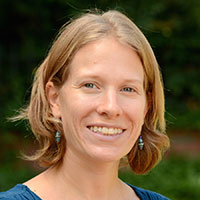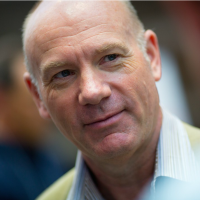Improved training, learning opportunities would help to meet UN’s ambitious water, sanitation, hygiene goals
January 14, 2019
Researchers and institutions engaged in efforts surrounding water, sanitation and hygiene (WaSH) may lack the information and resources they need to meet the United Nations’ ambitious Sustainability Development Goal (SDG) for water and sanitation. New research from the UNC Gillings School of Global Public Health could benefit the WaSH community by engaging multiple parties to develop a set of common global research priorities.
Karen Setty, MESM, doctoral candidate in environmental sciences and engineering at the Gillings School and member of The Water Institute at UNC, is lead author of “Global Water, Sanitation and Hygiene Research Priorities and Learning Challenges under Sustainable Development Goal 6,” published online Nov. 25, 2018, in Development Policy Review.
Jamie Bartram, PhD, Don and Jennifer Holzworth Distinguished Professor of environmental sciences and engineering and director of The Water Institute, helped to conceptualize and co-author the study, which was performed in collaboration with the Sanitation and Water for All (SWA) partnership.
The United Nations adopted the SDGs in 2015 to better address global issues such as widespread poverty, an aging population, and changes in climate and migration. Among the 17 SDGs, Goal 6, which seeks to “ensure availability and sustainable management of water and sanitation for all,” has a more ambitious agenda for water, sanitation and hygiene than the UN’s previous goal, as it targets all individuals in all countries. It also sets a higher expectation for “safe” management of water and wastewater.
The research team sent an electronic questionnaire to representatives from countries, public and private institutions, external support agencies and other professional groups to gauge their learning and training needs. The responses indicated a lack of confidence in certain areas, such as safe disposal of wastewater, sewage and fecal sludge.
In the study, research and other WaSH activities more frequently were held accountable to funders than other types of stakeholders, such as communities that could benefit from the SDGs. Findings also identified a need for information to be delivered in a variety of formats, tailored to the ways audiences within and outside the research community consume information.
According to Setty, WaSH institutions, partnerships, information and programs used to achieve the MDGs will require adaptation to meet the SDG targets.
“Importantly, this study illustrated a gap between how scientists and others gathered information,” Setty said. “Practitioners and decision makers more often perceived conflicts among different information sources, and typically sought reports from multilateral institutions – such as World Bank, the World Health Organization, and UNICEF – as a voice of authority and consensus. Further, those working outside of research and learning institutions more often perceived external barriers to participating in training, such as not receiving an announcement.”
Contact the Gillings School of Global Public Health communications team at sphcomm@listserv.unc.edu.


